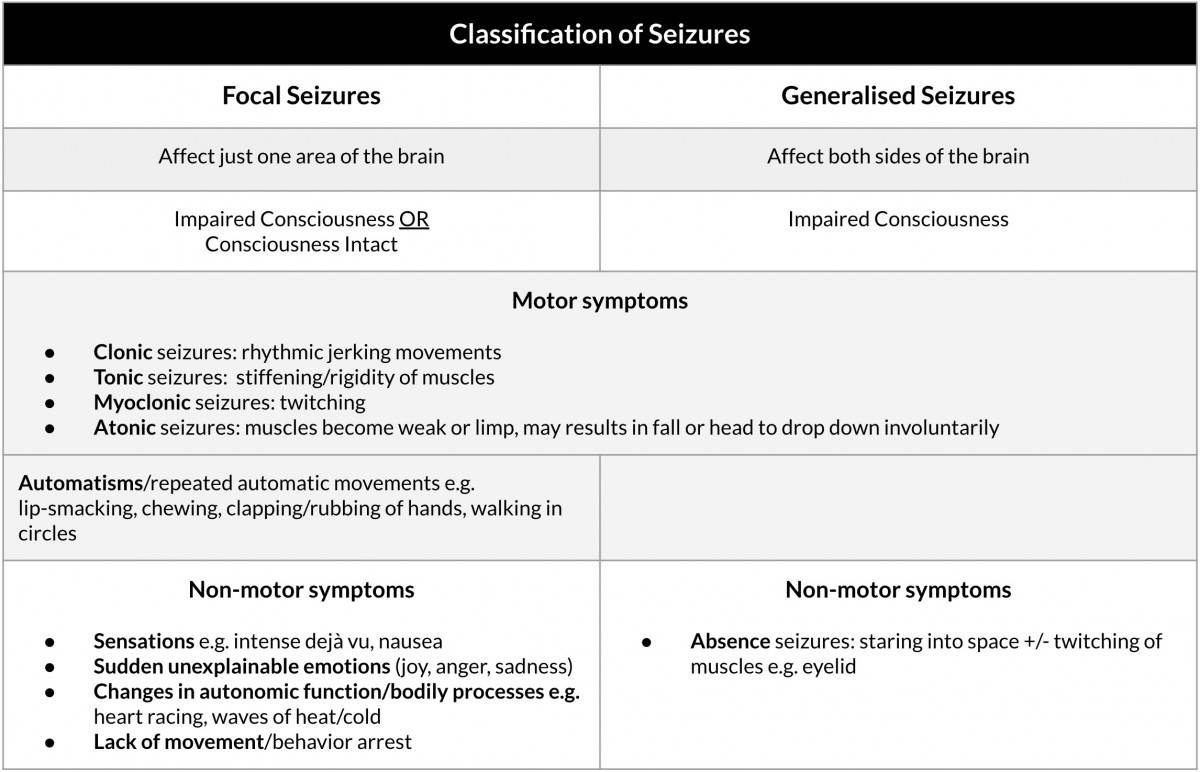A seizure is an abnormal surge in electrical activity in the brain which may affect a person’s consciousness, movements, sensations, emotions or behaviour. A seizure is a single event while epilepsy is the disease involving recurrent unprovoked seizures. In this article, learn more about the causes, triggers, and types of seizures, that make up epilepsy.
A person is diagnosed with epilepsy if they have had two unprovoked seizures (or one unprovoked seizure with the likelihood of more) that were not caused by some known and reversible medical condition e.g. high fever, alcohol withdrawal or extremely low blood sugar.
Incidence of Epilepsy
Epilepsy is one of the most common brain disorders worldwide. Approximately 50% of the global population live in Asia, of whom about 23 million people live with epilepsy. The prevalence varies among Asian countries from 1.5 (Hong Kong) to 14.0 (Vietnam) in 1000.
Rates are higher in lower-income, rural areas due to endemic central nervous system infections like malaria, more road traffic accidents and traumatic brain injuries, or lack of access to health care.
Epilepsy can affect one’s safety, work, relationships and quality of life. The risk of premature death in people with epilepsy is up to 3 times higher than for the general population. However, up to 70% of people living with epilepsy could be seizure-free if properly diagnosed and treated.
Epilepsy: Causes
The cause is unknown for about half of everyone with epilepsy. In general, anything that disrupts the electrical wiring and nerve signalling in the brain can cause seizures and epilepsy. This commonly includes genetic conditions affecting brain development and function. It can also be a consequence of events resulting in brain damage, such as the following:
- Genetic mutations that affect brain function e.g.
- Lafora disease, an inherited genetic mutation hampering utilisation of carbohydrates as fuel and forming clumps in brain cells
- Congenital abnormalities with associated brain malformations e.g.
- Down’s Syndrome
- Cerebral Palsy
- Illnesses and consequent brain damage e.g.
- Brain Tumour
- Stroke or heart attack that deprive the brain of oxygen (momentarily)
- Brain infection from parasites (e.g. malaria), viruses (e.g. Influenza, Dengue, Zika), and bacteria (Streptococcus Pneumoniae, Neisseria Meningitidis)
- Other neurologic diseases (e.g. Alzheimer’s disease – build-up of proteins affect communication between brain’s nerve cells, may cause excessive electrical activity resulting in seizures)
- Traumatic brain/head injury e.g.
- Accidents
- Loss of oxygen during birth
Triggers
Triggers are factors that precipitate seizures in people with epilepsy, and may include:
- Missed doses of anti-seizure medication(s)
- Heavy alcohol consumption
- Alcohol withdrawal
- Stress
- Sleep deprivation
- Dehydration or skipping meals
- Hormonal changes associated with menstrual cycle
- Visual stimulation e.g. flashing lights
- Medications which lower seizure thresholds (usually at high doses) e.g.
- Antidepressants like bupropion, tricyclics
- Antibiotics like isoniazid, penicillin
- Analgesics like tramadol, pethidine
- Anti-asthmatics like theophylline
- Immunosuppressants like cyclosporine
Types of Seizures
Seizures can be classified according to 2 main types:

But not all seizures can be clearly defined as either focal or generalised. Some people have seizures that begin as focal seizures but then spread to the entire brain.
Seizures that are unwitnessed may be of unknown onset and classified after diagnosis.













